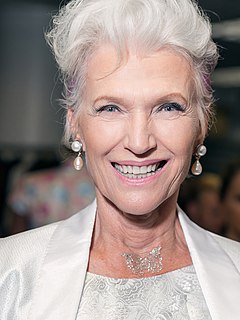A Quote by Joel Fuhrman
Three of the most beneficial, longevity promoting anti-cancer foods are green vegetables, beans, and onions.
Related Quotes
There is no longer any question about the importance of fruits and vegetables in our diet. The greater the quantity and assortment of fruits and vegetables consumed, the lower the incidence of heart attacks, strokes, and cancer. There is still some controversy about which foods cause which cancers and whether certain types of fat are the culprits with certain cancers, but there's one thing we know for sure: raw vegetables and fresh fruits have powerful anti-cancer agents.
The ideal human diet looks like this: Consume plant-based foods in forms as close to their natural state as possible (“whole” foods). Eat a variety of vegetables, fruits, raw nuts and seeds, beans and legumes, and whole grains. Avoid heavily processed foods and animal products. Stay away from added salt, oil, and sugar. Aim to get 80 percent of your calories from carbohydrates, 10 percent from fat, and 10 percent from protein.
If there's foods I don't like, like kale, it doesn't mean that I'm not efficient in my diet; it just means I can eat broccoli and other green vegetables. That's what people don't understand, is that as long as you're having a variety of foods in your diet, you don't have to have the food of the week that's everyone going crazy about.


































